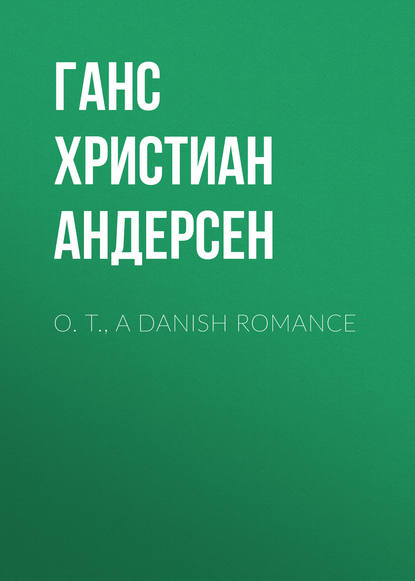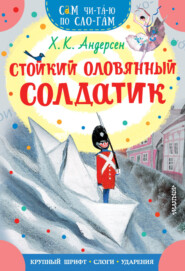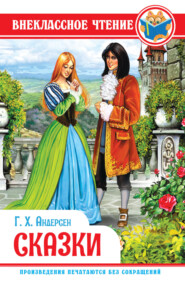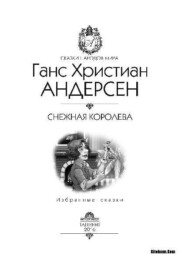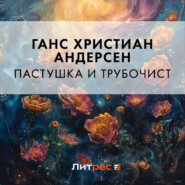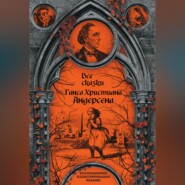По всем вопросам обращайтесь на: info@litportal.ru
(©) 2003-2024.
✖
O. T., A Danish Romance
Настройки чтения
Размер шрифта
Высота строк
Поля
“Yes, the scene in the second act, where she steps out of the window,” said the merchant; “that is very instructive for youth!”
“But the last act is sweet!” cried the lady. “The second act is certainly, as Hans Peter very justly observed, somewhat French. Good heavens! he gets quite red, the sweet lad!” She extended her hand to him, and nodded, smiling, whereupon Hans Peter spoke very prettily about the immorality on the stage. The father also made some striking observation.
“Yes,” said the lady, “were all husbands like thee, and all young men like Hans Peter, they would speak in another tone on the stage, and dress in another manner. In dancing it is abominable; the dresses are so short and indecent, just as though they had nothing on! Yet, after all, we must say that the ‘Somnambule’ is beautiful. And, really, it is quite innocent!”
They now entered still deeper into the moral: the conversation lasted till coffee came.
Maren’s heart beat even quicker, partly in expectation of the play, through hearing of the corruptions of this Copenhagen Sodom. She heard Otto defend this French piece; heard him speak of affectation. Was he then corrupted? How gladly would she have heard him discourse upon propriety, as Hans Peter had done. “Poor Otto!” thought she; “this is having no relations, but being forced to struggle on in the world alone.”
The merchant now rose. He could not go to the theatre. First, he had business to attend to; and then he must go to his club, where he had yesterday changed his hat.
“Nay, then, it has happened to thee as to Hans Peter!” said the lady. “Yesterday, in the lecture-room, he also got a strange hat. But, there, thou hast his hat!” she suddenly exclaimed, as her eye fell upon the hat which her husband held in his hand. “That is Hans Peter’s hat! Now, we shall certainly find that he has thine! You have exchanged them here at home. You do not know each other’s hats, and therefore you fancy this occurred from home.”
One of the sisters now brought the hat which Hans Peter had got in mistake. Yes, it was certainly the father’s. Thus an exchange in the house, a little intermezzo, which naturally, from its insignificance, was momentarily forgotten by all except the parties concerned, for to them it was an important moment in their lives; and to us also, as we shall see, an event of importance, which has occasioned us to linger thus long in this circle. In an adjoining room will we, unseen spirits, watch the father and son. They are alone; the family is already in the theatre. We may, indeed, watch them—they are true moralists. It is only a moral drawn from a hat.
But the father’s eyes rolled, his cheeks glowed, his words were sword-strokes, and must make an impression on any disposition as gentle as his son’s; but the son stood quiet, with a firm look and with a smile on his lips, such as the moral bestows. “You were in the adjoining room!” said he. “Where it is proper for you to be there may I also come.”
“Boy!” cried the father, and named the place, but we know it not; neither know we its inhabitants. Victor Hugo includes them in his “Children’s Prayer,” in his beautiful poem, “La Prière pour Tous.” The child prays for all, even “for those who sell the sweet name of love.”[18 - Note: “Prie!… Pour les femmes échevelées Qui vendent le doux nom d’amour!”]
“Let us be silent with each other!” said the son. “I am acquainted with many histories. I know another of the pretty Eva!”—
“Eva!” repeated the father.
We will hear no more! It is not proper to listen. We see the father and son extend their hands. It appeared a scene of reconciliation. They parted: the father goes to his business, and Hans Peter to the theatre, to anger himself over the immorality in the second act of the “Somnambule.”
CHAPTER XXIV
“L’amour est pour les coeurs,
Ce que l’aurore est pour les fleurs,
Et le printemps pour la nature.”
—VIGUE.
“Love is a childish disease and like the small-pox. Some die, some become deformed, others are more or less scarred, while upon others the disease does not leave any visible trace.”—The Alchemist, by C. HAUCH.
“Be candid, Otto!” said Wilhelm, as he one day visited his friend. “You cannot make up your mind to say thou to me; therefore let it be. We are, after all, good friends. It is only a form; although you must grant that in this respect you are really a great fool.”
Otto now explained what an extraordinary aversion he had felt, what a painful feeling had seized upon him, and made it impossible to him.
“There you were playing the martyr!” said Wilhelm, laughing. “Could you not immediately tell me how you were constituted? So are most men. When they have no trouble, they generally hatch one themselves; they will rather stand in the cold shadow than in the warm sunshine, and yet the choice stands open to us. Dear friend, reflect; now we are both of us on the stream: we shall soon be put into the great business-bottles, where we shall, like little devils, stretch and strain ourselves without ever getting out, until life withdraws from us!” He laid his arm confidentially upon Otto’s shoulder. “Often have I wished to speak with you upon one point! Yes, I do not desire that you should confess every word, every thought to me. I already know that I shall be able to prove to you that the thing lies in a region where it cannot have the power which you ascribe to it. In the cold zones a venomous bite does not operate as dangerously as in warmer ones; a sorrow in childhood cannot overpower us as it does in riper age. Whatever misfortune may have happened to you when a child, if in your wildness—you yourself say that you were wild—whatsoever you may have then done, it cannot, it ought not to influence your whole life: your understanding could tell you this better than I. At our age we find ourselves in the land of joy, or we never enter it!”
“You are a happy man!” exclaimed Otto, and gazed sorrowfully before him. “Your childhood afforded you only joy and hope! Only think of the solitude in which mine was passed. Among the sand-hills of the west coast my days glided away: my grandfather was gloomy and passionate; our old preacher lived only in a past time which I knew not, and Rosalie regarded the world through the spectacles of sorrow. Such an environment might well cast a shadow upon my life-joy. Even in dress, one is strangely remarkable when one comes from afar province to the capital; first this receives another cut, and one gradually becomes like those around one. The same thing happens in a spiritual relation, but one’s being and ideas one does not change so quickly as one’s clothes. I have only been a short time among strangers, and who knows?” added he, with a melancholy smile, “perhaps I shall come into equilibrium when some really great misfortune happens to me and very much overpowers me, and then I may show the same carelessness, the same phlegm as the multitude.”
“A really great misfortune!” repeated Wilhelm. “You do, indeed, say something. That would be a very original means of cure, but you are an original being. Perhaps lay this means you might really be healed. ‘Make no cable out of cobweb!’ said a celebrated poet whose name does not occur to me at this moment. But the thought is good, you should have it embroidered upon your waistcoat, so that you might have it before your eyes when you droop your head. Do not look so grave; we are friends, are we not? Among all my young acquaintance you are the dearest to me, although there are moments when I know not how it stands with us. I could confide every secret to you, but I am not sure that you would be equally open with me. Do not be angry, my dear friend! There are secrets of so delicate a nature, that one may not confide them even to the dearest friend. So long as we preserve our secret it is our prisoner; it is quite the contrary, however, so soon as we have let it escape us. And yet, Otto, you are so dear to me, that I believe in you as in my own heart. This, even now, bears a secret which penetrates me with joy and love of life! I must speak cut. But you must enter into my joy, partake in it, or say nothing about it; you have then heard nothing—nothing! Otto, I love! therefore am I happy, therefore is there sunshine in my heart, life joy in my veins! I love Eva, the beautiful lovely Eva!”
Otto pressed his hand, but preserved silence.
“No, not so!” cried Wilhelm. “Only speak a word! Do you I’m in a conception of the world which has opened before me?”
“Eva is beautiful! very beautiful!” said Otto, slowly. “She is innocent and good. What can one wish for more? I can imagine how she fills your whole heart! But will she do so always? She will not always remain young, always lovely! Has she, then, mind sufficient to be everything to you? Will this momentary happiness which you prepare for her and yourself be great enough to outweigh—I will not say the sorrow, but the discontent which this union will bring forth in your family? For God’s sake, think of everything!”
“My dear fellow!” said Wilhelm, “your old preacher now really speaks out of you! But enough: I can bear the confession. I answer, ‘Yes, yes!’ with all my heart, ‘yes!’ Wherefore will you now bring me out of my sunshine into shade? Wherefore, in my joy over the beauty of the rose should I be reminded that the perfume and color will vanish, that the leaves will fall? It is the course of life! but must one, therefore, think of the grave, of the finale, when the act begins?”
“Love is a kind of monomania,” said Otto; “it may be combated: it depends merely upon our own will.”
“Ah, you know this not at all!” said Wilhelm. “But it will come in due time, and then you will be far more violent than others! Who knows? perhaps this is the sorrow of which you spoke, the misfortune which should bring your whole being into equipoise! That was also a kind of search after the sorrowful. I will sincerely wish that your heart may be filled with love as mine is; then will the influence of the sand-hills vanish, and you will speak with me as you ought to do, and as my confidence deserves!”
“That will I!” replied Otto. “You make the poor girl miserable! Now you love Eva, but then you will no longer be able. The distance between you and her is too great, and I cannot conceive how the beauty of her countenance can thus fill your whole being. A waiting-girl! yes, I repeat the name which offends your ear: a waiting-girl! Everywhere will it be repeated. And you? No one can respect nobility less than I do—that nobility which is only conferred by birth; it is nothing, and a time will come when this will not be prized at all, when the nobility of the soul will be the only nobility. I openly say this to you, who are a nobleman yourself. The more development of mind, the more ancestors! But Eva has nothing, can have nothing, except a pretty face, and this is what has enchained you; you are become the servant of a servant, and that is degrading yourself and your nobility of mind!”
“Mr. Thostrup!” exclaimed Wilhelm, “you wound me! This is truly not the first time, but now I am weary of it. I have shown too much good nature, and that is the most unfortunate failing a man can be cursed with!”
He seated himself at the piano, and hammered away.
Otto was silent a moment, his checks glowed, but he was soon again calm, and in a joking tone said: “Do not expend your anger upon that poor instrument because we disagree in our views. You are playing only dissonances, which offend my ear more than your anger!”
“Dissonances!” repeated Wilhelm. “Cannot you hear that they are harmonies? There are many things for which you have a bad ear!”
Otto knew how to lead his anger to different points regarding which they had formerly been at variance, but he spoke with such mildness that Wilhelm’s anger rather abated than increased.
They were again friends, but regarding Eva not one word more was said.
“I should not be an honest and true friend to him, were I to let him be swallowed up by this whirlpool!” said Otto to himself, when he was alone. “At present he is innocent and good but at his age, with his gay disposition!—I must warn Eva! soon! soon! The snow which has once been trodden is no longer pure! Wilhelm will scarcely forgive me! But I must!”
On the morrow it was impossible for him to travel to Roeskelde, but the following day he really would and must hasten thither.
Still, in the early morning hour, Eva occupied his thoughts; she busied Wilhelm’s also, but in a different way: but they agreed in the purity of their intentions. There was still a third, whose blood was put in motion at the mention of her name, who said: “The pretty Eva is a servant there! One must speak with her. The family can make an excursion there!”
“You sweet children!” said the merchant’s wife, “the autumn is charming, far pleasanter than the whole summer! The father, should the weather remain good, will make an excursion with us to Lethraborg the day after to-morrow. We will then walk in the beautiful valley of the Hertha, and pass the night at Roeskelde. Those will be two delightful days! What an excellent father you have! But shall we not invite Mr. Thostrup to go with us? We are so many ladies, and it looks well to have a few young gentlemen with us. Grethe, thou must write an invitation; thou canst write thy father’s name underneath.”
CHAPTER XXV
“These poetical letters are so similar to those of Baggesen, that we could be almost tempted to consider the news of his death as false, although so well affirmed that we must acknowledge it.”—Monthly Journal of Literature. “She is as slender as the poplar-willow, as fleet as the hastening waters. A Mayflower odorous and sweet.”—H. P. HOLST.
“Ah, where is the rose?”—Lulu, by GUNTELBURG.
The evening before Otto was to travel with the merchant’s family to Roeskelde he called upon the family where Miss Sophie was staying. Her dear mamma had left three days before. Wilhelm had wished to accompany him to Roeskelde, but the mother did not desire it.
“We have had a pleasure to-day,” said Sophie, “a pleasure from which we shall long have enjoyment. Have you seen the new book, the ‘Letters of a Wandering Ghost?’ It is Baggesen himself in his most perfect beauty, a music which I never believed could have been given in words. This is a poet! He has made July days in the poetry of Denmark. Natural thoughts are so strikingly, and yet so simply expressed; one has the idea that one could write such verses one’s self, they fall so lightly.”
“They are like prose,” said the lady, “and yet the most beautifully perfect verse I know. You must read the book, Mr. Thostrup!”
“Perhaps you will read to us this evening?” said Sophie. “I should very much like to hear it again.”
“In a second reading one shall enter better into the individual beauties,” said the lady of the house.
“I will remain and listen,” said the host.
“This must be a masterpiece!” exclaimed Otto,”—a true masterpiece, since all are so delighted with it.”





